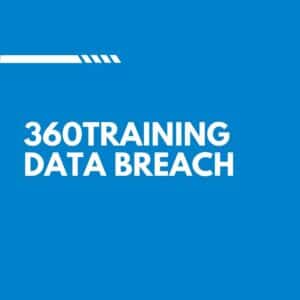The mounting body of research on technology and personal productivity has shown that the average person is distracted or interrupted every 40 seconds when working at their computer. In short, we can’t work for even a single minute before we drift off to look at something else. Of course, it’s sometimes easy to hop back on track; but when a person’s attention is entirely derailed, studies show that it can take up to 20 minutes to refocus.
Human Beings Are Hardwired For Distraction
Our brain’s neural system is programmed to respond to anything pleasurable, threatening, or novel. We even have a novelty bias, wherein our brain is flooded with dopamine (a chemical pleasure cocktail) whenever we pay attention to something new.
From the perspective of evolutionary history, this makes sense. Rather than focusing exclusively on, say, starting a fire, our prehistoric ancestors were distracted by novel stimuli and threats—an approaching saber-toothed tiger, for example. Those individuals survived to see another day because of that trait and hence passed it on.
While everyone’s situation differs, few of us face many saber-toothed tigers in daily life. The distractions that confront us are indeed novel and pleasurable, but they no longer aid our survival. In fact, they detract from activities that are productive and meaningful. Instagram is always going to be more attractive than an Excel spreadsheet; browsing through email will undoubtedly offer a bigger dopamine hit than the report we’re researching.
So how does a modern human recapture control? After reviewing hundreds of studies, interviewing dozens of experts, and testing out the methods in teams, career coaches have identified the best strategies for overcoming distraction.
Four Tips For Overcoming Distraction
1. Create a distraction-free ritual. With so much input fragmenting our attention, we need to avoid as many as we can in advance. A distraction-free mode where you can hunker down and focus on your most important, complex tasks will be a huge improvement. Some people you distraction blockers on their computer (for example, apps like Freedom), wear earplugs or noise-canceling headphones, leave their phones in a different room, stock up on coffee and snacks so they don’t have to run out of those items, and then set an intention for what they wish to accomplish. After focusing for 45 minutes, you can treat yourself to a 10-minute all-you-can-eat distraction buffet.
People working work in an open office may need to physically get up and change their scenery to cultivate a distraction-free mode. After all, distractions occur 64% more often in an open office, and we experience more interruption by others in that environment as well.
2. Set three daily goals. When you work with a clearly-defined intent, you will focus on what’s really important. To accomplish this, some people begin first thing in the morning asking themselves: What three things will I want to accomplish by day’s end? Less important tasks should be relegated to a separate to-do list. Part of what makes this habit so powerful is that three things fit comfortably within our attention at once, and prioritizing them ensures that those particular tasks rise above the longer laundry list of less significant things.
3. Work on the challenging tasks, and do more of them. Our work tends to expand to fill the time available for completion, and any leftover minutes are usually filled up with trivial distractions. In productivity research, this phenomenon is known as Parkinson’s law. While distractions often come from internal and external factors, they can also occur when we’re not sufficiently challenged by our work. Evaluate your busywork level. If it’s high, that’s typically a sign that you have the ability to take on projects with a higher challenge level.
Authors have noticed this phenomenon when they fall back into significantly more busy work after submitting their book manuscript; where before there was no time, suddenly they are vigilantly tending to social media, email, and apps. That’s the moment to realize that work is simply expanding to fit the available time. When you do so, consisted of taking on more-challenging work—or more projects in general. The distractions are a sign that you probably have room for it.
4. Set an artificial project deadline. YOU are now in control of introducing a novel and threatening factor to any long-term projects that lack urgency. Have an entire afternoon to draft a report? Give yourself 50 minutes. Turning the task into a game will make you spend more attention and energy on that project since it can no longer take up hours of your time.
There’s no way to prevent our minds from craving distraction. But we can manage those temptations by adopting some simple strategies for overcoming distraction in advance, working with greater intention, and reclaiming our attention as much as possible.





